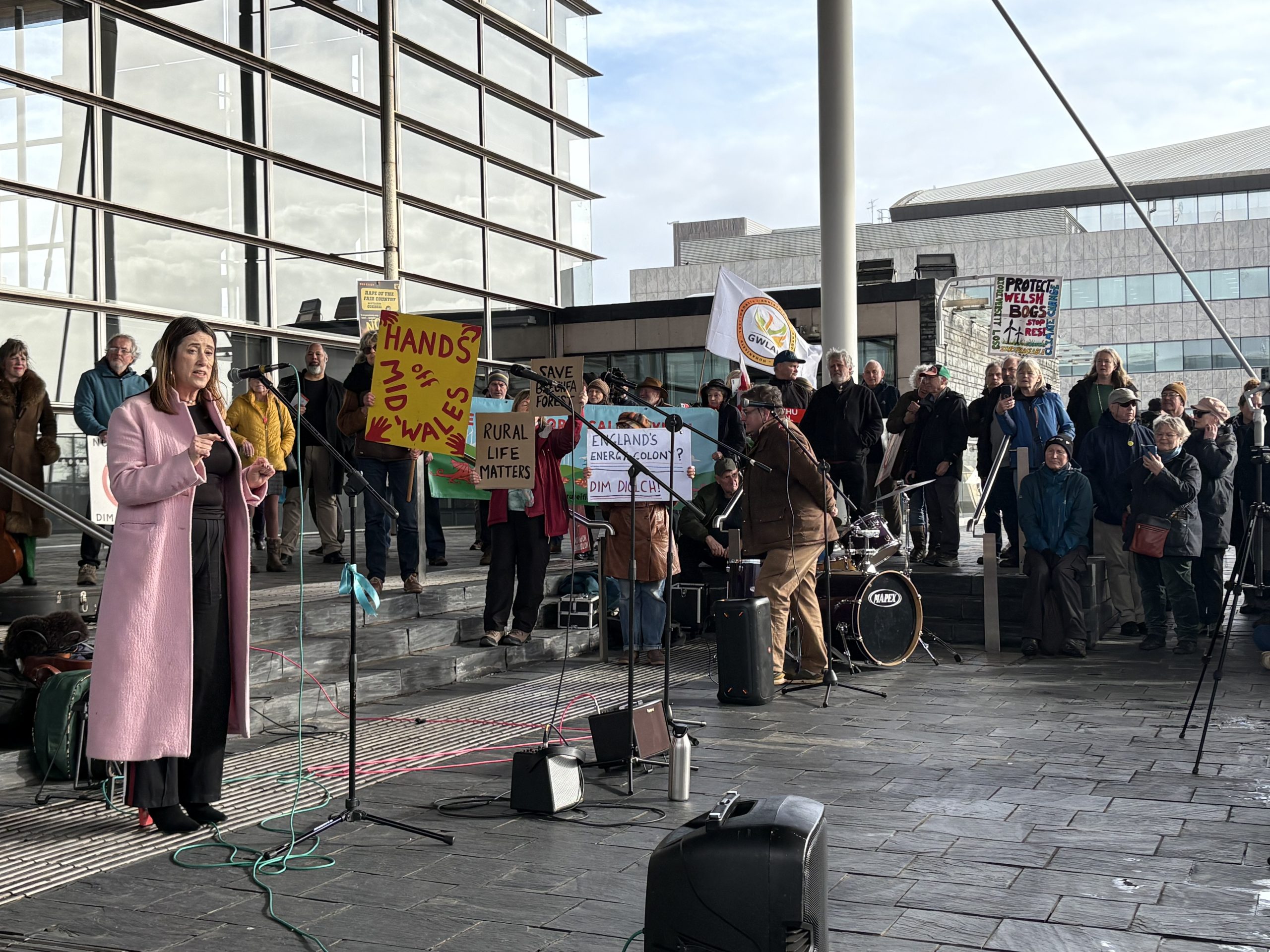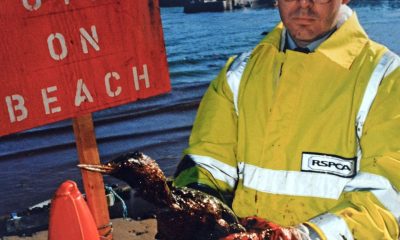News
Pembrokeshire campers warned of carbon monoxide dangers

 WITH the arrival of the school summer holidays, the trade association for the UK LP Gas industry (UKLPG) is issuing a timely warning to those of us in Pembrokeshire people planning a camping or caravanning vacation to avoid the dangers of carbon monoxide (CO) poisoning.
WITH the arrival of the school summer holidays, the trade association for the UK LP Gas industry (UKLPG) is issuing a timely warning to those of us in Pembrokeshire people planning a camping or caravanning vacation to avoid the dangers of carbon monoxide (CO) poisoning.
CO is a colourless, odourless gas and is poisonous. Symptoms of carbon monoxide poisoning include headaches, drowsiness, dizziness, chest pains, nausea and vomiting. At high levels, carbon monoxide poisoning can cause sudden collapse, loss of consciousness and death. Every year around 200 people go to hospital with CO poisoning and sadly for around 40 of these, it proves fatal. A major cause of these incidents has been bringing charcoal barbecues inside tents, but there is also a need to be vigilant with portable gas appliances, such as gas lamps and gas cookers, used in camping and caravanning. There has been a dramatic increase in the sale of gas barbecues due to their convenience and cost; up by 164% year-on-year according to one major DIY retailer. Rob Shuttleworth, chief executive of UKLPG, said: “Research, carried out by Gas Safe Register in 2013, found that many people do not understand the dangers of CO on holiday. Indeed, more than half of the people surveyed did not realise that a smoking charcoal barbecue in a tent, caravan, motor home or room can result in CO poisoning. More than a third did not realise that using a portable gas camping stove inside can be a potential danger and more than 20% did not realise CO can build up in a poorly ventilated space, such as a caravan, with working gas appliances in it. “UKLPG works closely with the Gas Safe Register as well as the wider industry, to ensure that the potential dangers of CO when camping and caravanning are highlighted so that the tragic deaths that do occur can be avoided. “It is great fun to cook outdoors, especially when the weather is good, but holiday makers need to be aware that they should never take these appliances indoors, even if it starts raining or is particularly cold or windy. “Ventilation is absolutely vital and in small enclosed spaces, such as tents and caravans, the gas can build up to fatal levels very quickly. Here are UKLPG’s tips on how to stay safe: Use LP Gas stoves, lights or heaters OUTDOORS ONLY. Tents and awnings are not ‘outdoors’ and, surprisingly, are not well ventilated Don’t use LP Gas appliances near flammable materials, including fabrics and long grass Don’t smoke when changing cylinders and cartridges Do use appliances in accordance with the instructions Do keep LP Gas cylinders and cartridges outside tents Do change cylinders and cartridges outside away from any source of ignition, never in a tent Do check that the appliance is in good order, undamaged and that hoses are properly attached and undamaged. If in doubt, don’t use it Do know where you are, what the emergency arrangements are on camping sites and how to call for help. “Over a million people use portable gas appliances safely each year and as we look forward to summer, we want to ensure that everyone remains vigilant and avoids CO poisoning. By following these simple rules, holiday makers can make sure that they avoid the risks and stay safe,” added Shuttleworth.
News
Protest at Senedd as climate groups clash on how Wales should go green

Campaigners demand landscape protection and underground cables while environmentalists warn Wales cannot slow the clean energy transition
A PROTEST took place outside Senedd Cymru on Wednesday (Feb 11) as campaigners gathered to oppose large-scale wind farms, energy parks and new overhead pylons across rural Wales.
Residents from mid and west Wales, including farming families, countryside groups and community activists, assembled on the steps of the Welsh Parliament holding banners reading “Hands off Mid Wales”, “Rural life matters” and “Protect Welsh bogs”.
Many said they support renewable energy in principle but fear that current proposals would industrialise rural landscapes while delivering little benefit to local people.
Among those addressing the crowd was Jane Dodds, leader of the Welsh Liberal Democrats, who renewed calls for ministers to require electricity cables to be placed underground rather than carried on new lines of pylons.
Calls for underground cables
Dodds said Wales must not lose its countryside in the rush to decarbonise.
“We cannot afford to lose our countryside,” she told protesters. “Once these wind turbines and pylons are in place, the impact on our landscapes will be long lasting and, in many cases, irreversible.
“Local people feel their concerns are being overlooked while large developers push ahead with major projects. That is not how the transition to green energy should work.”
She pointed to a recent budget agreement which secured £1 million for a Visual Impact Innovation Fund to trial undergrounding technologies and explore alternatives to overhead infrastructure in sensitive areas.
“We need a balanced approach,” she said. “We must move away from fossil fuels, but we must also protect the beauty and character of rural Wales.”
Why people are protesting
Speakers and attendees raised concerns about:
• visual impact of turbines and pylons on open countryside
• effects on peatland, wildlife and habitats
• loss of productive farmland
• heavy construction traffic through small villages
• profits flowing to distant shareholders rather than host communities
Several campaigners argued that decisions feel “done to” communities rather than shaped with them, with limited consultation and little long-term return.
Some called for smaller-scale, locally owned schemes instead of what they described as “mega-projects”.
Climate groups defend renewables
In response to the protest, Climate Cymru said Wales must not step back from wind power and other renewables, warning that continued reliance on fossil fuels would worsen both the climate and cost-of-living crises.
Stan Townsend, spokesperson for the group, said: “Rising energy bills and energy insecurity are already affecting families, farmers and businesses across the country.
“Turning away from renewables would mean deeper dependence on volatile, expensive, polluting fossil fuels. We need clean, home-grown energy to protect people and the planet.”
He said Wales has some of the best wind resources in Europe and a major opportunity to cut bills, create skilled jobs and strengthen energy security.
Community ownership ‘key to support’
Community Energy Wales said many objections could be eased if local people had ownership or a financial stake in developments.
Leanne Wood, co-executive director, said: “If communities can part own developments, many of the objections to new wind turbines can be overcome. Ownership brings control.
“This would lock the profits into those communities and potentially reduce bills.”
The organisation is working to enable locally generated renewable electricity to be sold directly to local consumers so that wealth stays within towns and villages.
A wider debate
The demonstration highlights a growing divide over how Wales meets its net zero targets.
While environmental groups stress the urgent need to expand renewable energy quickly, rural campaigners say the Wales-wide push must not come at the expense of landscapes, farming and community consent.
Dodds urged the Welsh Government to strengthen planning, consultation and benefit schemes so that communities see clear advantages.
For many at the Senedd, the message was clear: renewable energy is necessary — but only if local people share the control, the profits and the decisions.
News
West Wales Together Alliance launch in Haverfordwest

A NEW alliance bringing together community groups, trade unions, faith leaders and campaigners from across west Wales is set to launch in Haverfordwest next month.
The West Wales branch of the Together Alliance will officially begin with a public meeting at 7:00pm on Wednesday (Mar 18) at Haverfordwest Mosque, Cherry Grove.
Organisers say the event will unite local politicians, farmers, artists, anti-racist organisations and faith groups in response to what they describe as growing “voices of division” in national and local politics.
In a statement, the alliance said: “Those who preach division are becoming more confident. Their false promises seize on very real economic problems and scapegoat migrants, Muslims and refugees.
“But we can change things together. The voices of unity can grow stronger. Strength lies in solidarity and working together for hope, not despair.”
The group aims to build cooperation between communities and challenge racism and extremism through grassroots organising. It says hundreds of organisations and individuals nationwide have already signed up.
The Haverfordwest launch forms part of a wider mobilisation ahead of a major national demonstration planned for London on March 28.
Several high-profile supporters have also backed the campaign, including comedian and campaigner Lenny Henry, who said: “We stand for love over hate, hope over fear and unity over division. We’re coming together against racism.”
Singer Paloma Faith added: “There is no world that I want to live in where discrimination is acceptable for anything.”
Organisers say anyone interested in promoting inclusion, equality and community solidarity is welcome to attend.

News
Welsh MS attacks ‘Nation of Sanctuary’ policy after asylum seeker jailed for child rape

Davies attacks ‘Nation of Sanctuary’ policy after asylum seeker jailed for child rape
A SENIOR Welsh Conservative has called for the Welsh Government’s “Nation of Sanctuary” policy to be scrapped after an Afghan asylum seeker was convicted of abducting and raping a 12-year-old girl.
Andrew RT Davies, leader of the Welsh Conservatives in the Senedd, said the case highlighted what he described as the “dangers” of the current approach to asylum and migration in Wales.
Ahmad Mulakhil, who arrived in the UK by small boat from France in March 2025, was convicted of the attack just four months later.
The case, reported nationally this week, has prompted renewed political debate over the Welsh Government’s stance on supporting asylum seekers and refugees.
Mr Davies said: “This appalling case demonstrates the dangers of importing violent criminals into Britain.
“Plaid Cymru and Labour’s decision to make Wales a Nation of Sanctuary for asylum seekers is a pull factor, encouraging more people to enter our country illegally.
“I reiterate my calls for this dangerous policy to be scrapped.”
The comments directly target the Welsh Government’s “Nation of Sanctuary” plan, launched in 2019, which aims to make Wales a welcoming place for refugees and people seeking asylum, with support for housing, education and integration.
The Welsh Government has previously defended the policy, saying it reflects “Welsh values of compassion and fairness,” and stressing that responsibility for border security lies with the UK Government.
Meanwhile, the UK Government has introduced tougher measures aimed at reducing small-boat crossings and speeding up removals of those with no right to remain.
The latest case is likely to intensify scrutiny of how asylum accommodation and safeguarding are managed across Wales.
For many residents, the debate now centres on how to balance humanitarian support with public safety and confidence in the system.
As Mr Davies’ intervention shows, the political argument over Wales’s role as a “Nation of Sanctuary” is far from over.
Meanwhile the official figures show that asylum seekers commit less crime than the general population.
-

 Health6 days ago
Health6 days agoHealth board targets rise in steroid and gym drug use across west Wales
-

 Crime7 days ago
Crime7 days agoSex offender jailed after living off grid in Pembrokeshire and refusing to register
-

 Crime6 days ago
Crime6 days agoTeacher injured and teenager arrested for attempted murder at Milford Haven School
-

 Business2 days ago
Business2 days agoComputer Solutions Wales under fire from customers
-

 Business5 days ago
Business5 days agoSix-figure negligence victory leaves retired builder trapped in divorce limbo
-

 News6 days ago
News6 days agoReform appoints Dan Thomas to lead party in Wales
-

 News6 days ago
News6 days agoAnother Senedd member defects to Reform as Lib Dem MP hits out
-

 Sport6 days ago
Sport6 days agoWales name squad for Six Nations opener against England



























